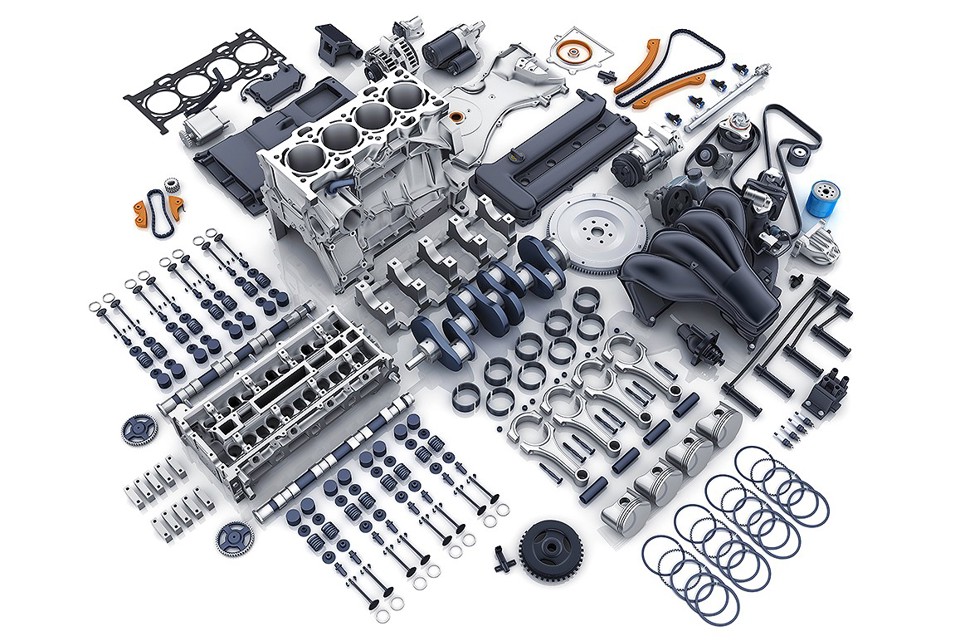Prior to the original March 29 Brexit day, car manufacturers filled the UK to the brim with new stock to avoid the fallout of a ‘no deal’ exit, with some dealers telling AM that brands had pressured them to pre-register as many cars as possible.
Fraser Brown, the managing director of automotive retail consultancy company MotorVise, said: “I have been told that some Volkswagen Group brands have auto-shipped every vehicle in Port of Tyne, Sheerness, and Grimsby to dealers, regardless of their ability to store them.
“Other manufacturers offered huge incentives for dealers to register vehicles at the end of March.”
A Volkswagen Group spokesman said that while it had increased its UK stock by 20,000, to 54,738 vehicles as AM was going to press, it had sufficient storage capacity not to push them out to its dealers.
Mike Jones, ASE chairman, said the approach to new car supply differed depending on the franchise.
He said: “Pre-reg over Q1 is actually on the same level as last year, there hasn’t been an industry-wide boost in that direction.
“Every manufacturer and dealership is just planning as best they can with the information they have, but it’s moving and morphing all the time.”
A logistical ‘nightmare’
Olivier Thouard, customs and tax director at Gefco, a logistics specialist that moves vehicles for Peugeot, Citroën, Ford and Jaguar Land Rover, confirmed that it has been working with its partners over the past 12 months to get greater volumes of vehicles into the UK in Q1.
He said manufacturers had filled Gefco’s stock facilities to the brim, leaving no space for them to continue this tactic into Q2.
Thouard said that in the event of a no-deal Brexit: “There will likely be delays as vehicles are either stopped in port or asked to move to another location to be checked if vehicles are not allowed to stop.”
Karl Davis, managing director at Coachworks Consulting, said some of his clients reported chaos at some ports as the extra vehicles created log-jams that delay dealer deliveries.
He said the situation has not been helped by a lack of transparency on the whereabouts of some ordered vehicles.
Davis urged all manufacturers and national sales companies to prioritise the delivery of dealer orders and keep their retailer partners in the loop.
“Some deliveries are being significantly delayed by this stockpiling, which isn’t just disappointing customers, but impacting which accounting period sales will be shown in,” he said.
“One client told us the delayed delivery of cars wiped out £250,000 profit which would have gone into March and Q1.
“These delays will also have a negative impact on the motivation of sales staff as sales targets are being missed and that is hitting their pay packets.”
Ben Waller, associate director at automotive distribution researchers ICDP, said the pull forward of vehicles has affected logistics into and within the UK and has put pressure on storage space at both centralised distribution centres and at dealers.
Waller said: “Many carmakers have bought additional storage capacity, but have still run out of space and so have been pushing some cars through to dealers.”
He said there is a risk of “significant overstocking and discounting over the coming months”.
Waller said this extra inventory will incur significant additional costs for both carmakers and dealers: “The impact of the contingency planning on the new vehicle supply chain into the UK has been significant, including ships being held at European ports in March due to lack of unloading capacity at UK ports, the costs of additional carmaker storage and the cost and management pressures generated by additional stock arriving early at dealerships during a peak sales month of March.”
A further complication is that registrations fell in Q1, with ongoing uncertainty over Brexit partly to blame. This means dealers’ ability to absorb additional supply is limited.
Brown said that while some manufacturers are distressing the market through wholesale stock pushes, others are managing stock to make sure they are being sold through natural retail demand.
He said: “Some manufacturers will be looking at the minimum volume necessary to sustain a market and a dealer network viability in 2019. Vehicles will move to the most profitable markets until Brexit settles down.
“Although there is political uncertainty in the UK, it should never be discounted as a market. It’s still one of the largest and most mature vehicle markets in Europe.”
Ian Plummer, Auto Trader’s manufacturer and agency director, said manufacturers have already shifted to holding three quarters of their stock in the UK anyway, with the remainder build-to-order. The potential for a no deal Brexit will accelerate that trend.
He said: “Some brands planned to get cars into the UK early. It mitigated the risk in Q1 and we see that continuing into Q2.
“If you have no visibility on the future, the best way to mitigate the risk is to get vehicles into the
UK now.”
Waller said: “Unlikely though no-deal seems, the contingency and scenario planning for a worst-case Brexit by several carmakers anticipates a fall in sales similar to that following the 2008 financial crisis.
“While extra inventory has been brought into the UK, carmakers remain cautious and, like everyone else, are hoping that contingency plans will remain on the shelf or will have to be absorbed as an expensive insurance policy.”
The effect of tariffs
In the event of a no-deal Brexit on the new leave date of October 31, the UK would switch to World Trade Organisation rules, resulting in a 10.6% tariff on all finished cars and trucks. To prevent disruption to supply chains, the UK has set the tariff on car parts imported from the EU at zero.
Erik Jonnaert, the secretary general of ACEA, the European association of vehicle manufacturers, said profit margins in the automotive industry are significantly lower than 10%.
“These extra costs will either be passed on to the consumer or will have to be absorbed by the manufacturers,” he said.
SMMT chief executive Mike Hawes said: “The car tariff could result in an average £1,500 uplift to sticker prices.”
David Bailey, professor of industrial strategy at Aston Business School, who will be speaking about the Brexit saga at AM’s Automotive Retail Congress on May 21, said model ranges may shrink as a result.
Niche products or models already pushing the boundaries on price for some franchises may no longer be viable following a 10% price increase.
The effect on vehicle plants
According to SMMT estimates, 1,100 trucks enter the UK from the EU every day to deliver parts worth a total of £35 million to car and engine plants; 5,100 cars and 5,750 engines are exported and 1,300 vehicles are distributed to UK dealerships.
Hawes said a ‘no-deal’ Brexit risked delays due to border checks, increased red tape and subsequent queues at ports.
Several UK car manufacturing plants had scheduled shutdowns around March 29, but now the leave date has been postponed, shutdowns may be extended, rescheduled, or at best, rendered unnecessary.
Waller said: “The current uncertainty is an operational and production planning nightmare for carmakers, component suppliers and logistics service providers as production requires clear and fixed scheduling and sequencing of supplied parts.
“Plant shutdowns often have a short-term impact on the stability of the production schedule, and this may mean delays in supply of new cars from UK plants – even in the event of no disruption to supply into the UK in the coming weeks – which dealers may struggle to explain to customers.”
Landing costs
Brown said manufacturers need certainty on what the landed cost of their vehicle is going to be.
“Manufacturers will want to get the profit bagged for every vehicle as long as there is certainty around that landed price.”
He said that extended negotiations “will throw exchange rates into flux and the potential tariffs will remove any certainty around a vehicle’s landed UK price”.
For vehicles leaving on ships that take six weeks from leaving the factory to arriving at UK ports, there is no clarity on what that landed price will be.
While models built in non-EU markets such as Japan will be less affected, Asian manufacturers with plants in Europe, such as Kia, may not be able to avoid price rises.
Smuggler’s paradise?
Under WTO rules and a no-deal Brexit, a tariff of 10.6% would be added when a vehicle crosses the UK-EU border.
However, the UK Government said it would not introduce checks or controls on goods moving from the Republic of Ireland to Northern Ireland.
There will instead be an “honesty-box” approach, with all exports to Britain through NI paying the relevant tariffs electronically, rather than at border control in Ireland or in a UK port. This puts the onus on the EU for any border infrastructure that has to be put in place.
Mike Jones, ASE chairman, suggested that the scheme raised the possibility of dealer groups in NI registering and then shipping pre-reg vehicles to mainland UK to avoid the 10.6% price hikes.
The fact that a UK industry is even talking about the possibility of what sounds like smuggling highlights the level of confusion about what is going to happen in the event of a no-deal Brexit.
David Boyd, managing director at Roadside Kia in Coleraine, said: “We have been given no indication that NI would be treated any differently, so 10% tariffs would still be applied to cars arriving here.”
Dr Holger Hestermeyer, Shell reader in international dispute resolution at King’s College London and currently Mid-career Fellow at the British Academy, said the politics surrounding Brexit are so toxic, that it is guesswork to think of what
policies will be put in place at borders.
Hestermeyer said: “The UK’s Department for International Trade (DIT) has announced that the UK will not check the NI border – and, indeed, that the UK will not impose tariffs.
“The position seems to be that there would be no controls, but still some form of monitoring. I have seen no official announcement how precisely this would work – and it raises the question whether this does not imply imposing a border in the
Irish Sea.”
Hestermeyer said there is a very real possibility of goods being transported through NI to avoid tariffs and clarity will be needed.
He said: “As currently announced, the NI tariff policy has little chance of surviving – or even being implemented as it stands.”
A WTO spokesman said: “We have no comment until the situation regarding the UK’s departure from the EU is clearer.”
Parts supply
The fact that parts won’t attract tariffs in the event of no deal will reassure dealers worried about costs going up.
However, any confusion or increased red tape may delay the flow of parts. It’s a system that has become extremely slick, with Steve Nash, IMI chief executive and former aftersales director for BMW Group UK, saying that when he was working for the German premium brand, he could get parts from Germany, onto a train and onwards to any destination in the UK within 24 hours.
Nash said: “Customers and dealers are used to having the convenience of parts availability on a 24-hour turnaround.
“Dealerships have also moved away from having the ability to stockpile large quantities of parts. They have got so used to having multiple parts deliveries a day that if the industry was called on to store more parts, there wouldn’t be the capacity to do so.”
Nash said it would then have to come down to the manufacturers to make sure they had parts warehouses big enough to store inventory.
Davis said one dealer client hedged its bets by instructing its sites to increase their stock holding of fast-moving service parts to cover at least three months’ worth of disruption should supply issues arise.
He said: “We would advocate any well resourced group or single site do the same, as they will eventually work their way through the stock no matter what happens with Brexit.
“The challenge will be whether the manufacturers would be able to meet a wide-scale increase in demand for these parts.”




















Login to comment
Comments
No comments have been made yet.